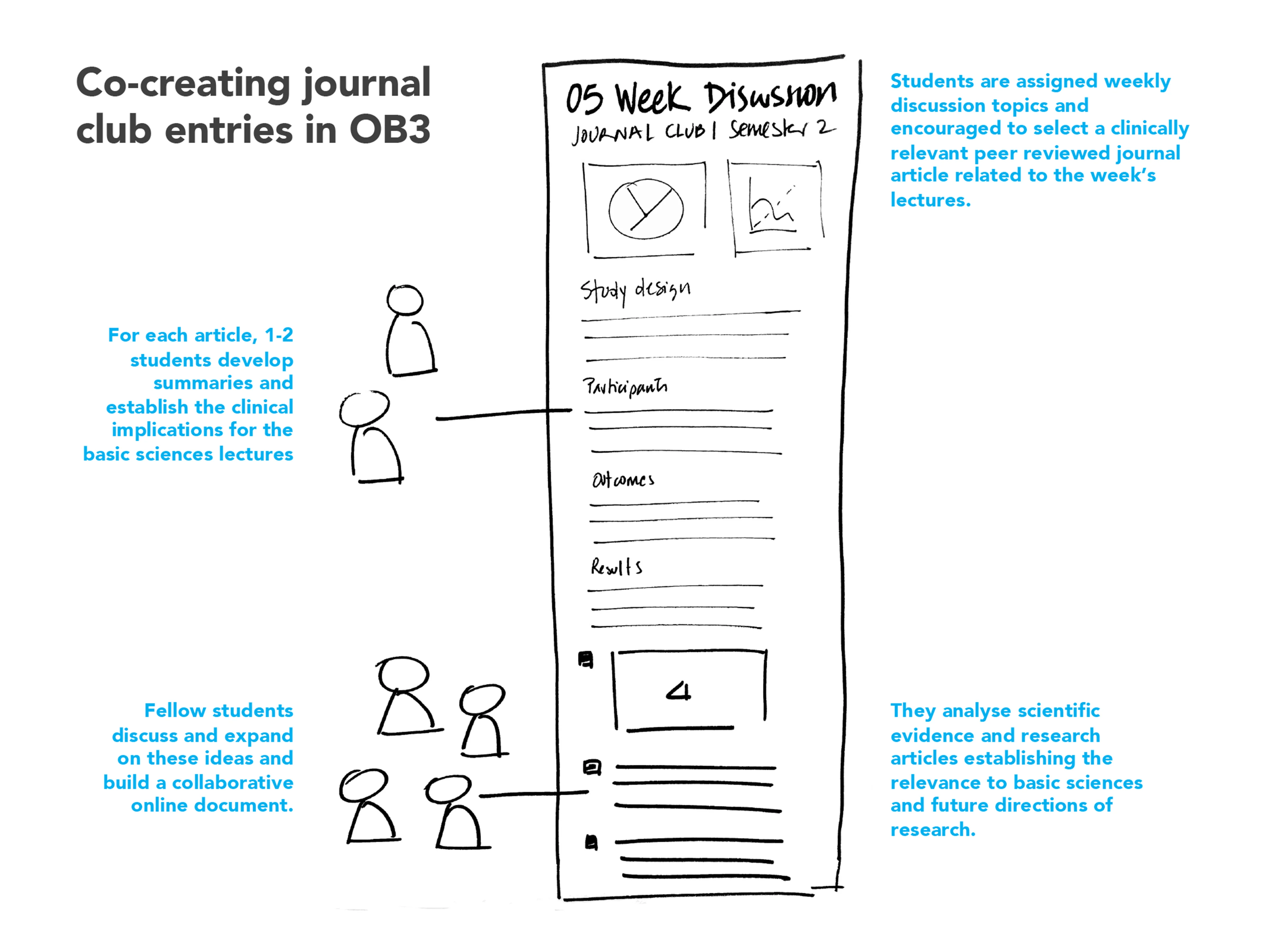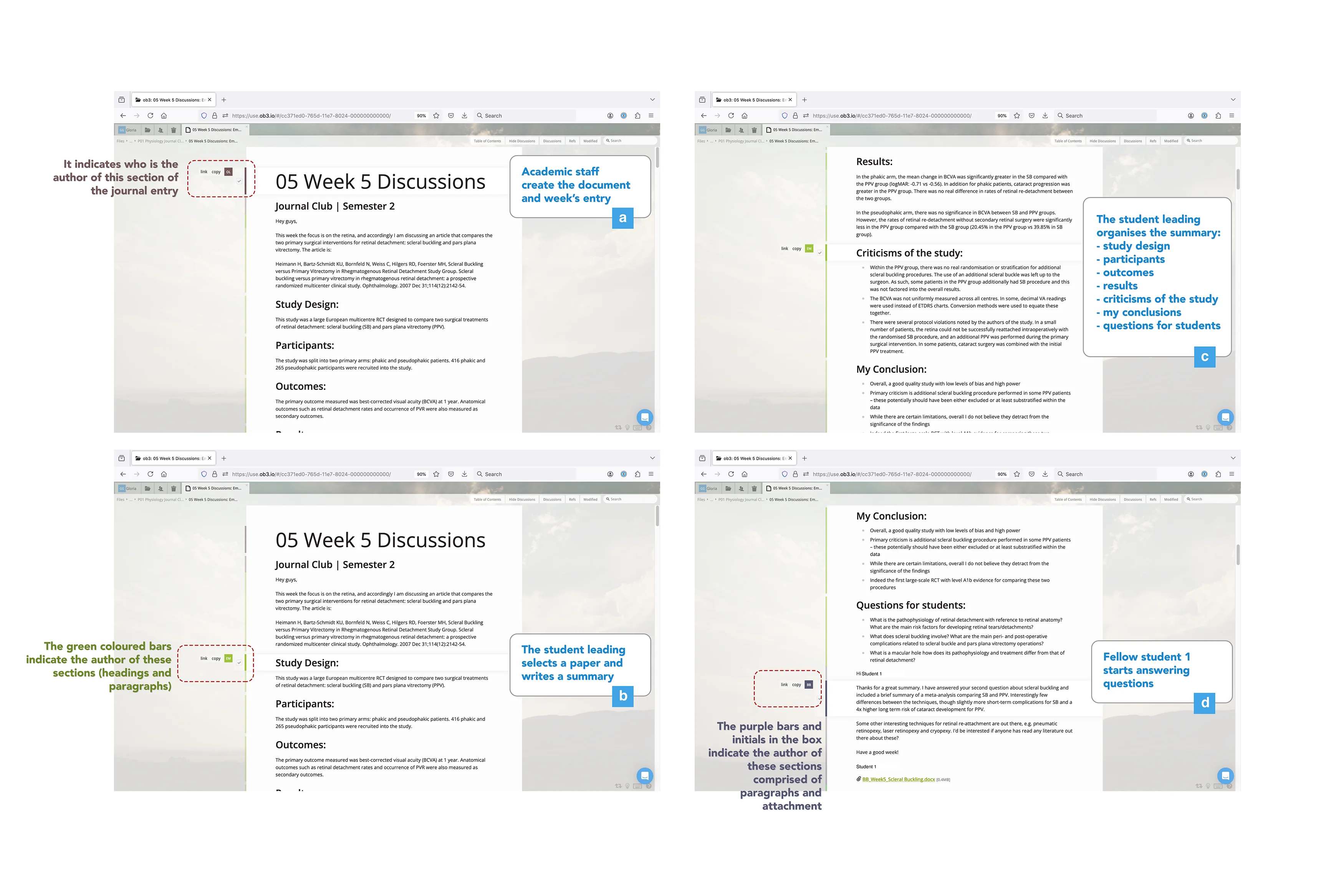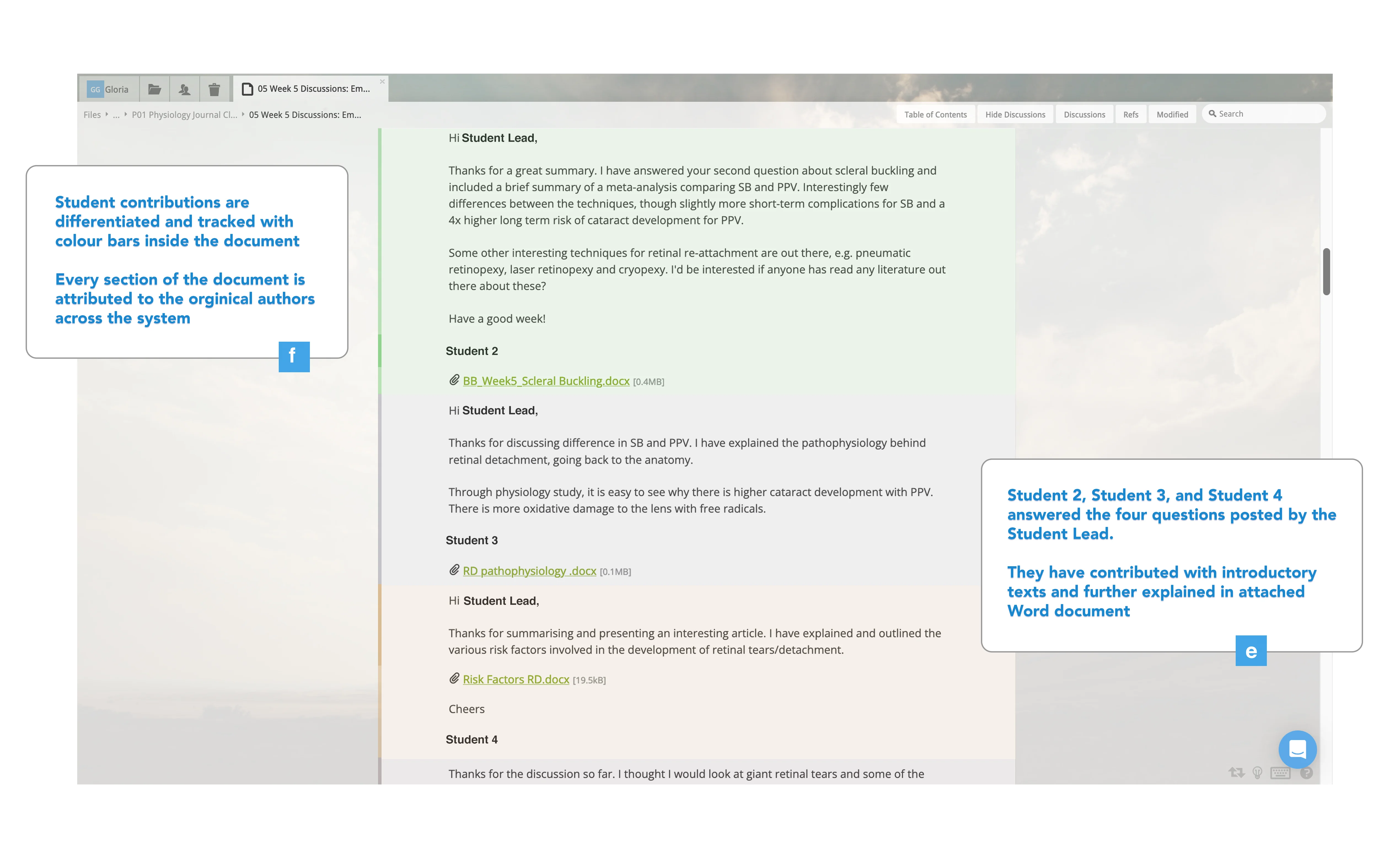Student-led Online Journal Club Entries in OB3
OB3 can be used to facilitate student-led online journal clubs, which combine document content with in-line discussions. Students co-create media-rich discussion documents in small groups within a unit of study. The aim is to develop links between theoretical concepts and clinical or professional practice. This activity promotes active student participation within a framework provided by academic staff.



